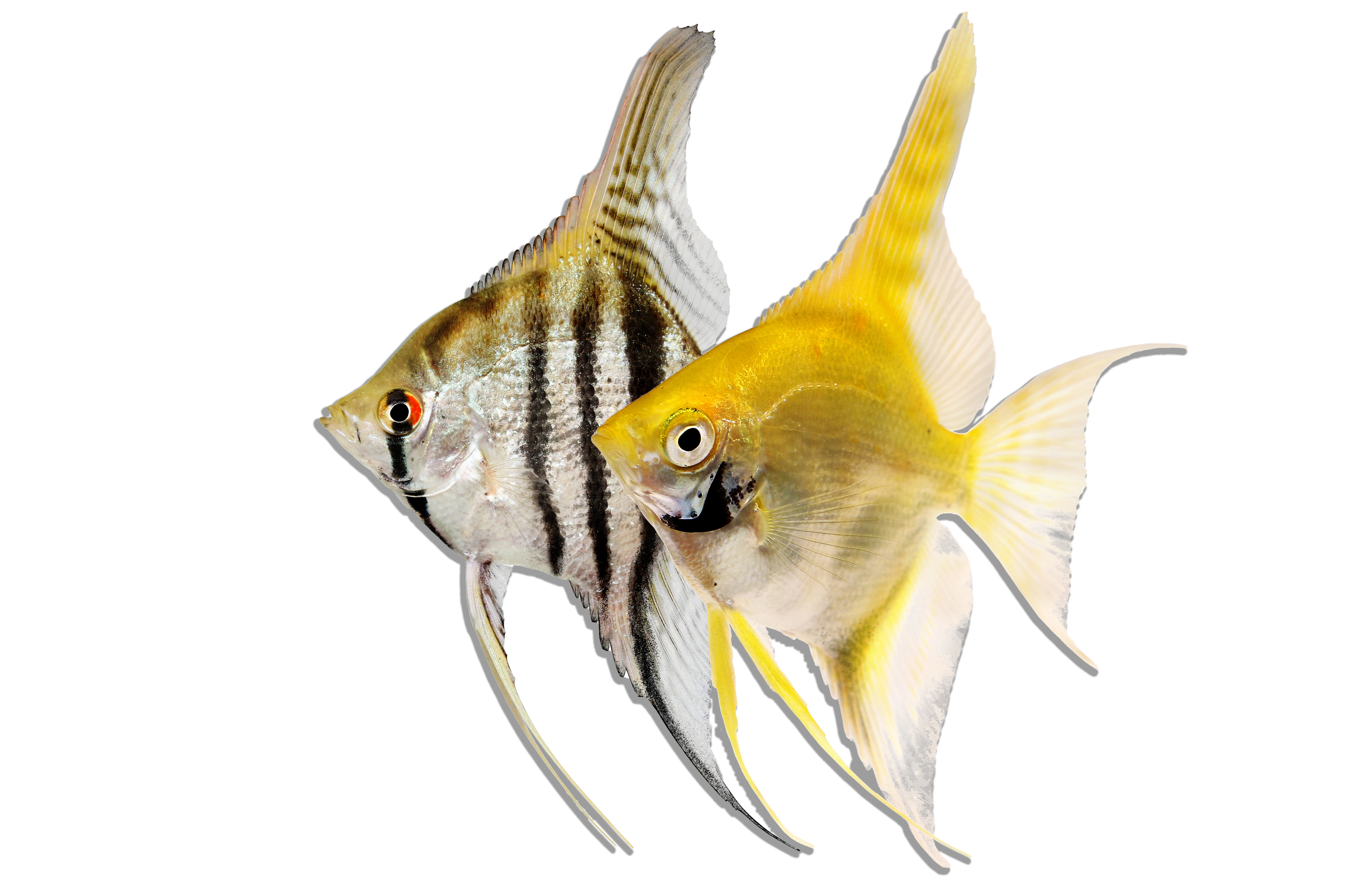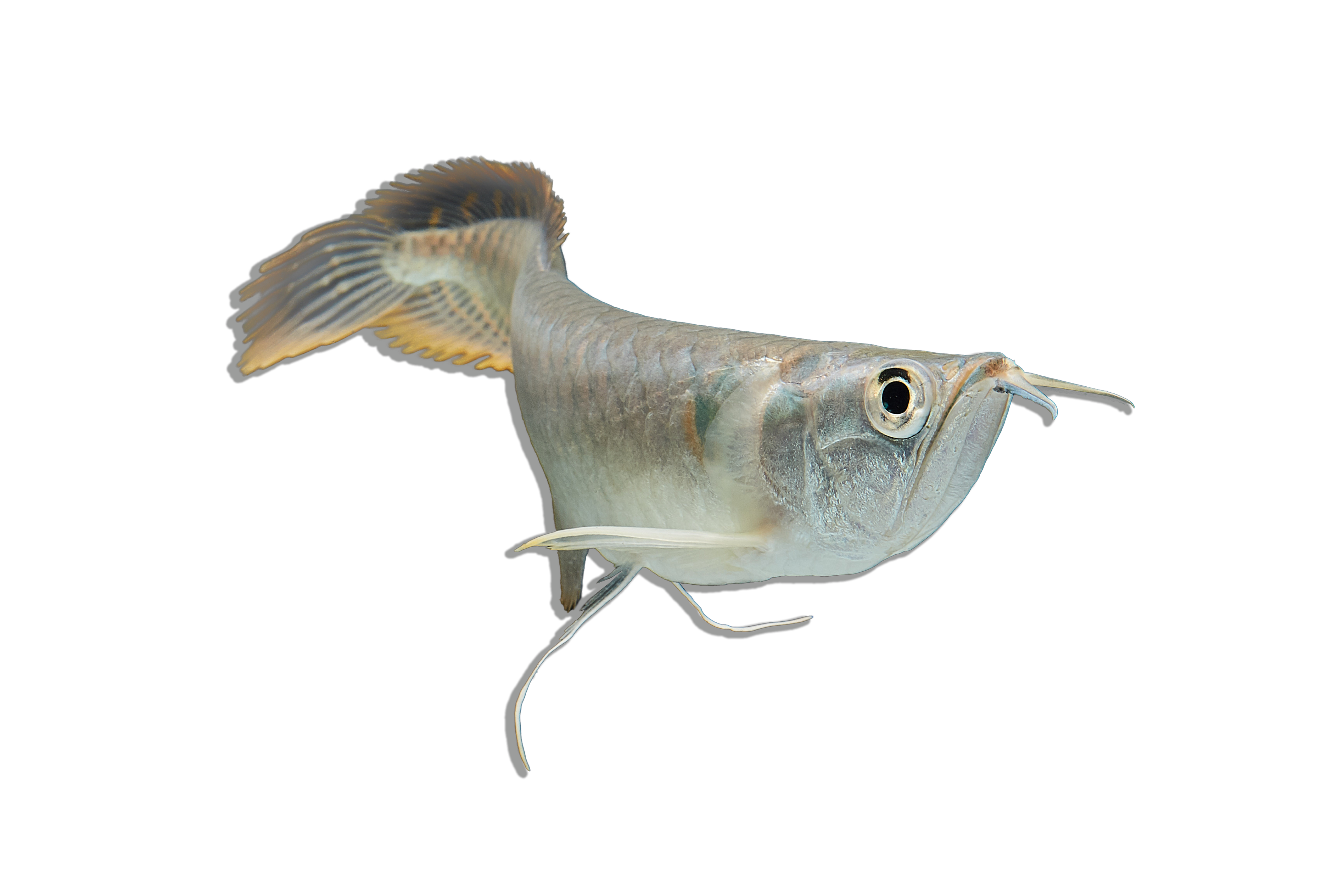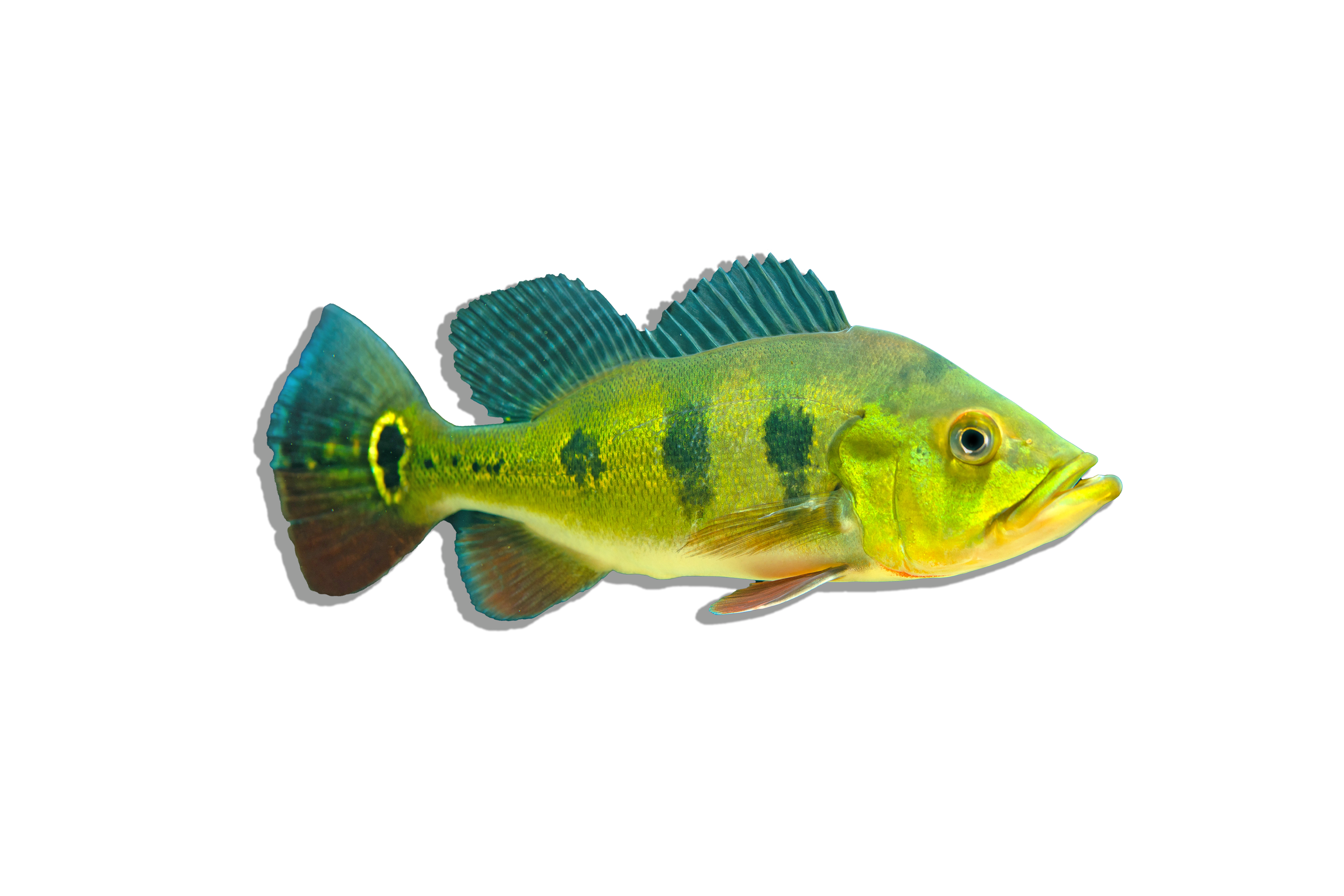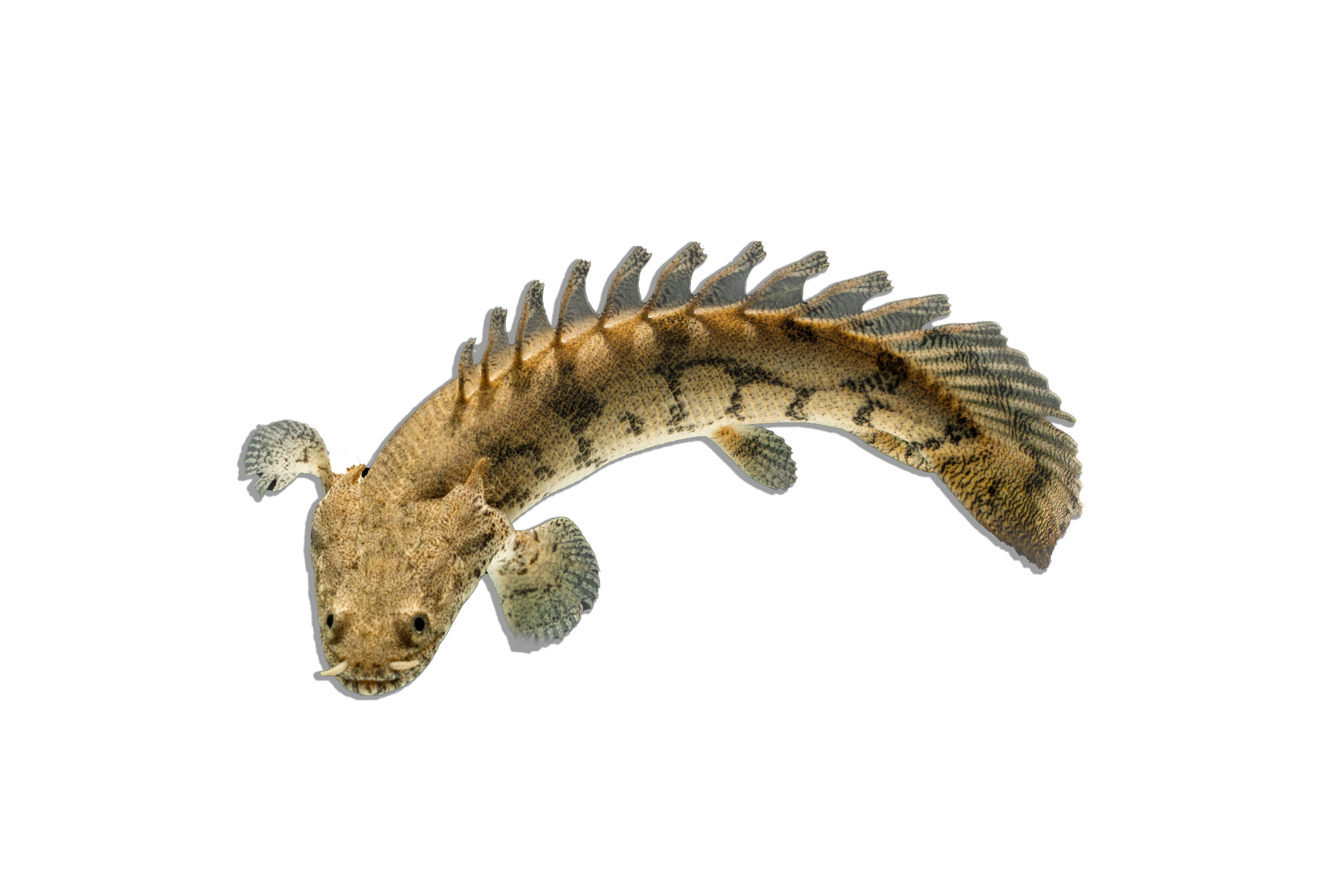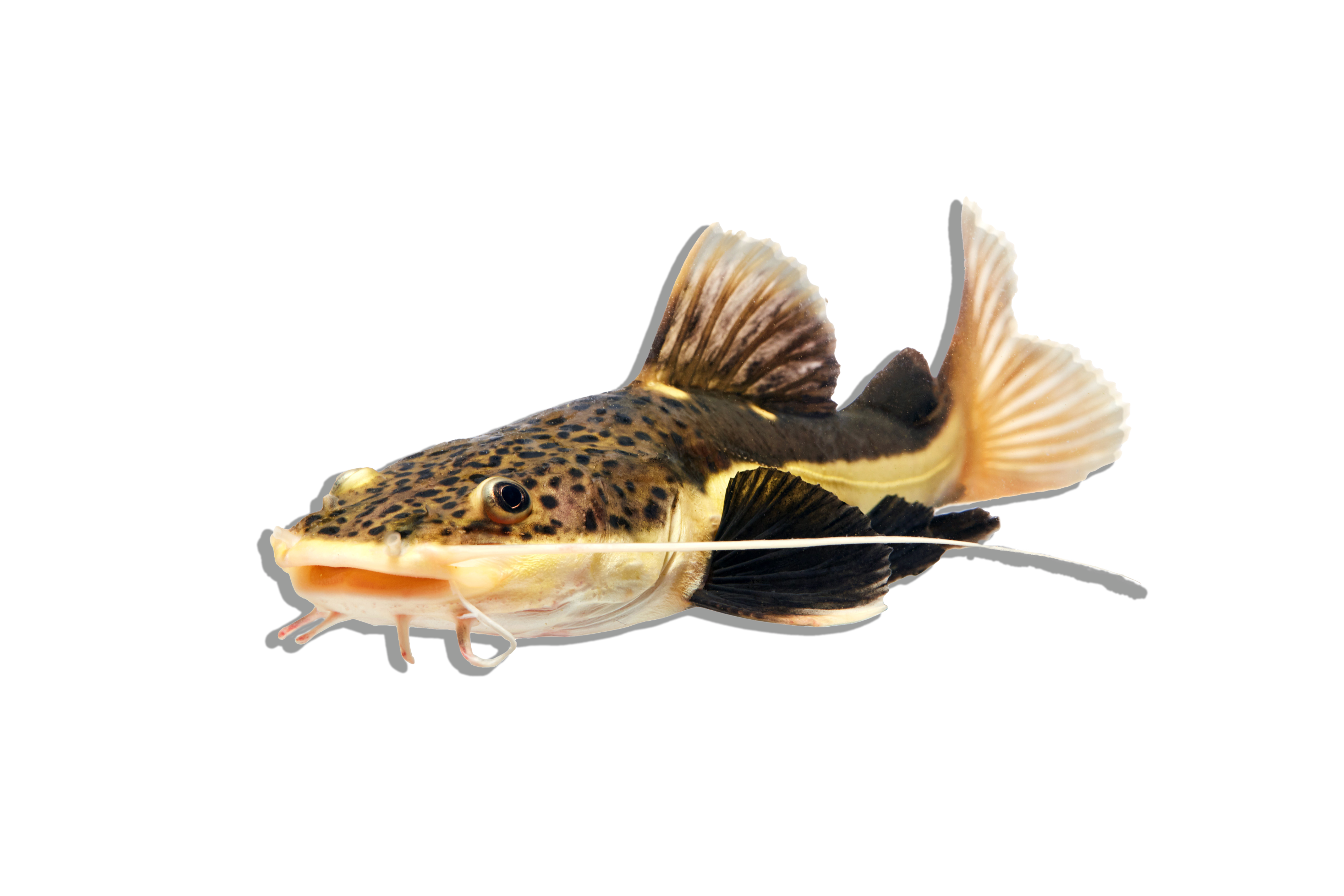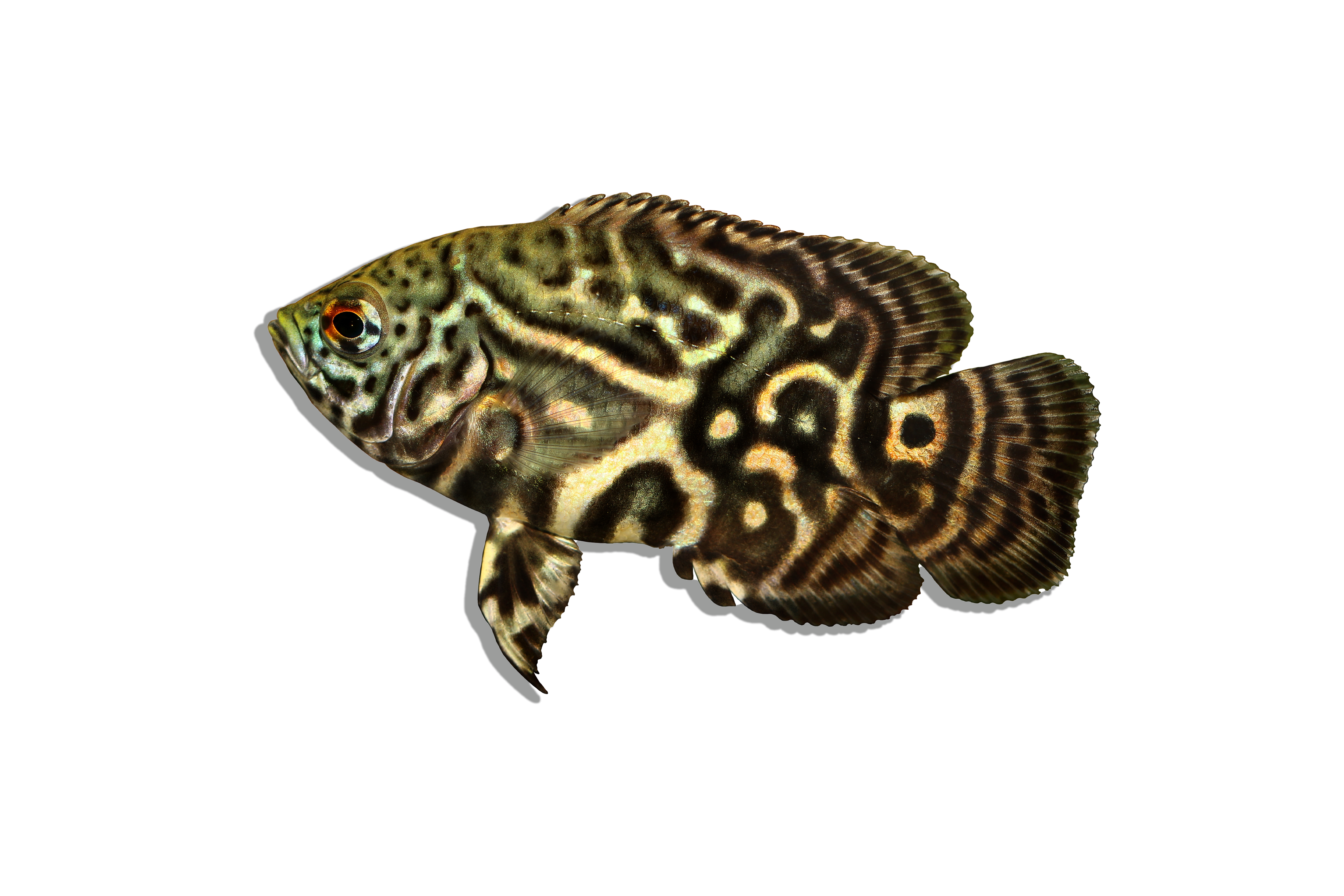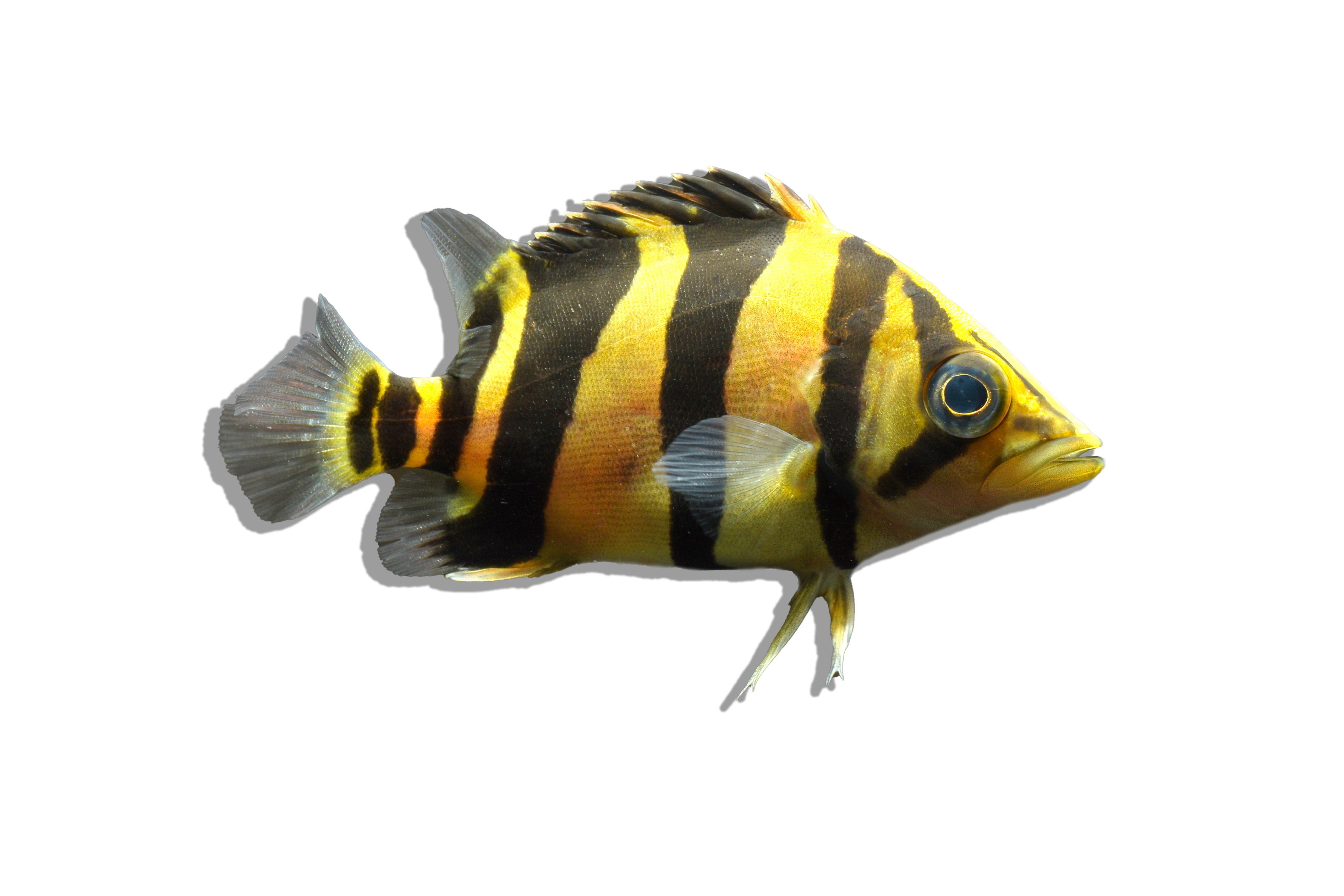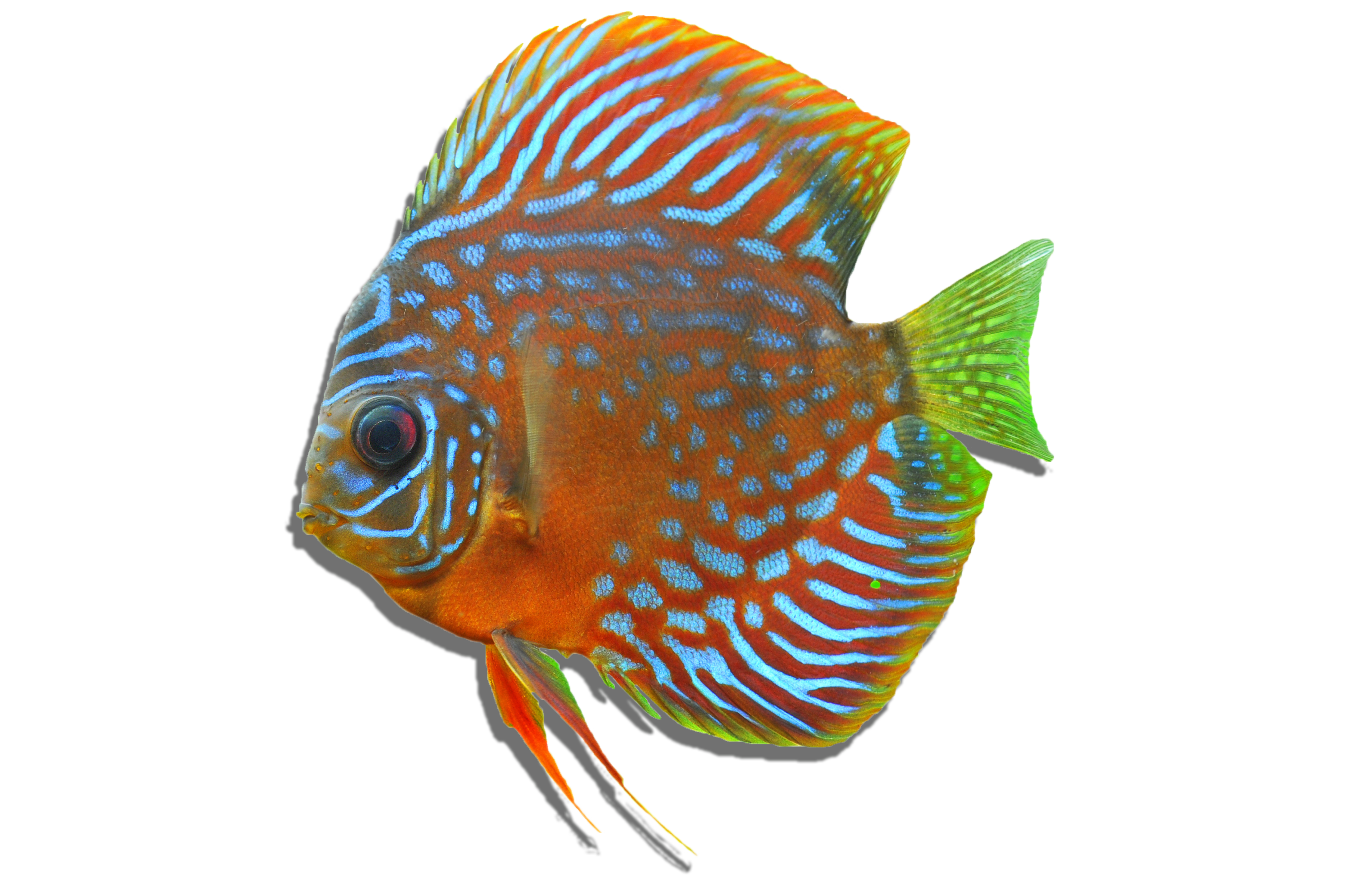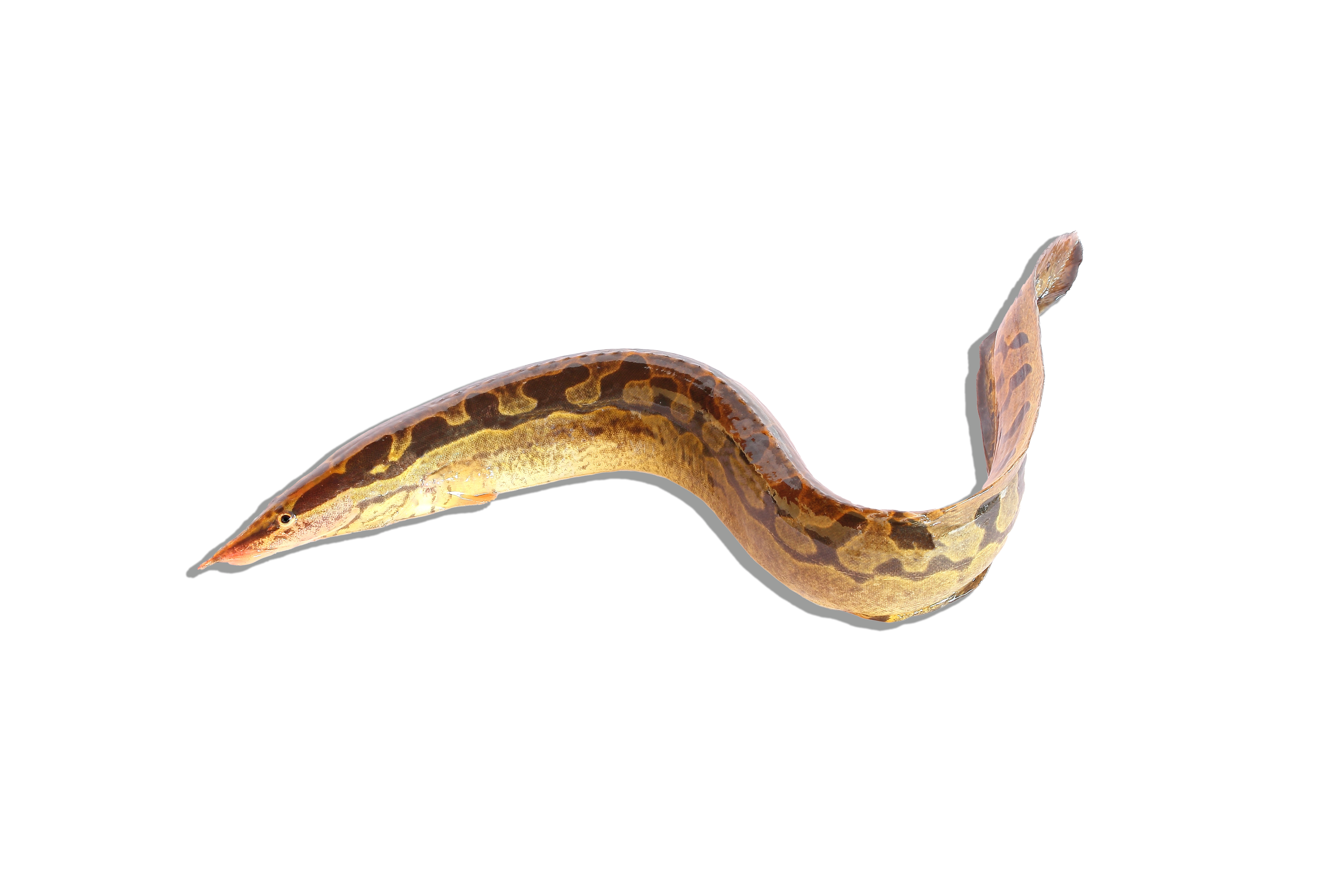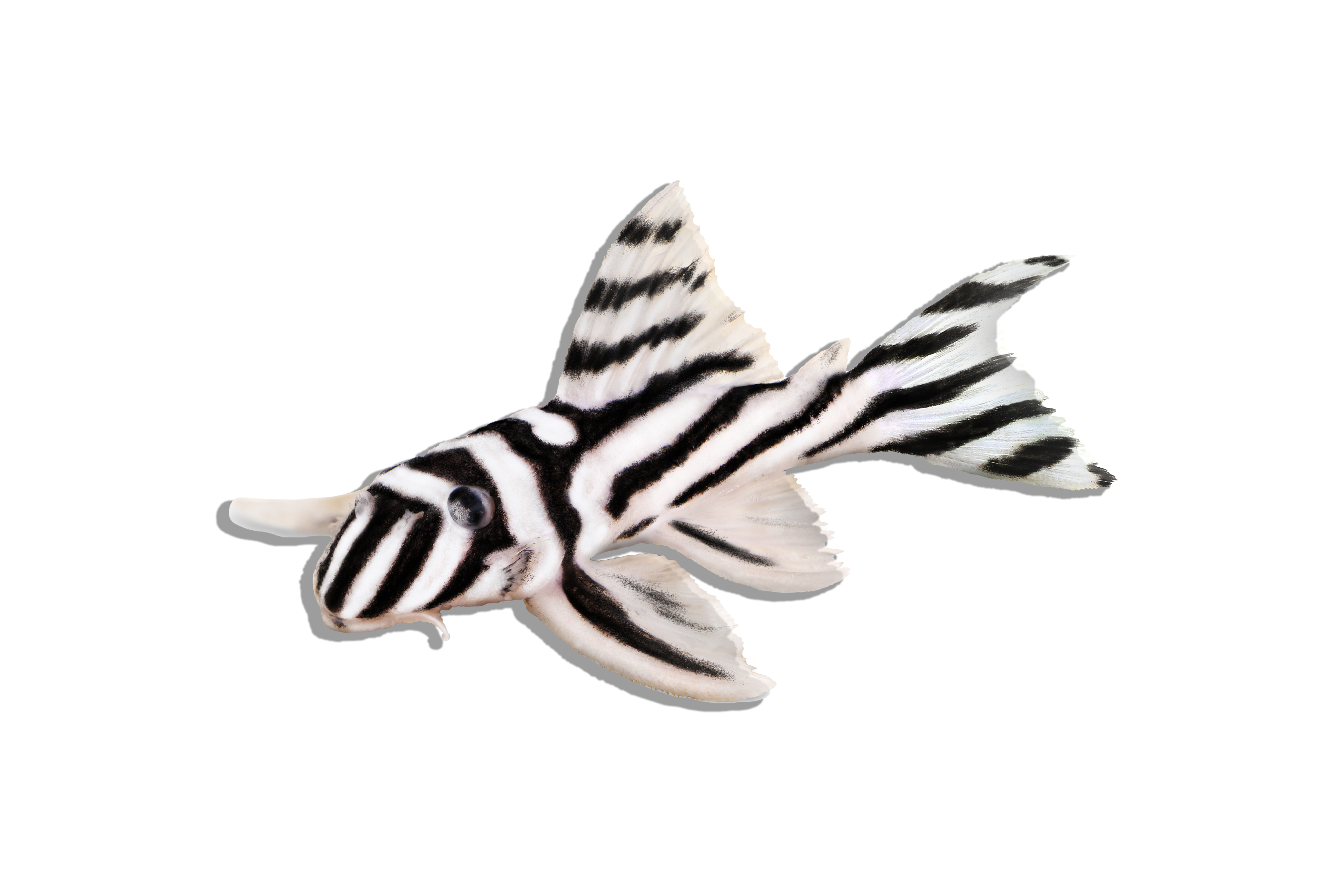Description
Common Name: Tiger Silver Dollar
Scientific Name: Metynnis fasciatus
Other Names: Banded Silver Dollar, Striped Silver Dollar
The Tiger Silver Dollar is a visually striking freshwater fish known for its distinctive silver body adorned with bold, black vertical stripes. This species resembles the shape of a traditional silver dollar coin but with unique tiger-like markings that add to its allure. Tiger Silver Dollars are schooling fish that bring dynamic movement and a splash of elegance to community aquariums.
Habitat and Distribution: The Tiger Silver Dollar is native to the slow-moving rivers and floodplains of South America, particularly in Brazil and Peru. These fish are commonly found in the Amazon Basin, inhabiting areas with dense vegetation and submerged roots, which provide cover and feeding opportunities. The natural habitat is typically warm, with slightly acidic to neutral waters rich in organic material.
Size and Lifespan: In the wild, Tiger Silver Dollars can grow up to 6 inches (15 cm) in length. In captivity, they typically reach around 4-5 inches (10-12 cm). Their lifespan can range from 8 to 10 years, depending on the care and conditions provided in the aquarium. Proper diet, water quality, and a spacious environment are crucial for their longevity.
Diet and Behavior: Tiger Silver Dollars are primarily herbivorous, feeding on plant material, algae, and fruits in the wild. In an aquarium, their diet should include a variety of plant-based foods such as blanched spinach, lettuce, and high-quality algae wafers. They can also be fed vegetable-based pellets and occasional protein sources like brine shrimp or bloodworms. These fish are peaceful and social, best kept in groups of six or more to prevent stress and encourage natural schooling behavior. They are active swimmers and prefer a well-planted tank with plenty of space to move around.
Breeding and Reproduction: Breeding Tiger Silver Dollars in captivity can be challenging due to their specific environmental needs. They are egg scatterers, and successful breeding typically requires a large, well-planted tank with soft, slightly acidic water and a temperature slightly higher than normal. The female scatters her eggs among plants or substrate, and the male fertilizes them. There is no parental care for the eggs or fry, so a separate breeding tank or protective measures are necessary to prevent the eggs from being eaten by other fish.
Aquarium Care and Tank Requirements: To keep Tiger Silver Dollars, a large aquarium of at least 75 gallons is recommended to provide ample swimming space and accommodate their schooling nature. The tank should include plenty of plants, driftwood, and hiding spots to mimic their natural habitat and reduce stress. A sandy or fine gravel substrate is ideal, along with moderate water flow to simulate river conditions. Efficient filtration and regular water changes are essential to maintain water quality.
Ideal Tank Mates: Tiger Silver Dollars can be kept with other peaceful, similarly sized fish that share similar water parameter requirements. Suitable tank mates include other large tetras, peaceful cichlids, and bottom-dwelling catfish. It is important to avoid housing them with overly aggressive or significantly larger fish, as this can lead to stress or bullying.
Difficulty Level: Intermediate. While they are hardy, their specific dietary needs and preference for schooling require attentive care and a well-maintained aquarium.
Water Parameters:
- Temperature: 75-82°F (24-28°C)
- pH: 6.0-7.5
- General Hardness (GH): 3-12 dGH
- Carbonate Hardness (KH): 2-6 dKH
- Ammonia: 0 ppm (ideal), up to 0.25 ppm (max)
- Nitrite: 0 ppm (ideal), up to 0.25 ppm (max)
- Nitrate: <20 ppm (ideal), up to 40 ppm (max)
Additional Information:
- The Tiger Silver Dollar's bold markings and schooling behavior make it a visually appealing and active addition to any aquarium.
- These fish are known for their ability to graze on algae and plant matter, which can help maintain a clean and balanced tank environment.
- In their natural habitat, Tiger Silver Dollars play a role in controlling vegetation and contributing to nutrient cycling, maintaining the health of their ecosystem.
- Fun fact: Tiger Silver Dollars are known for their agility and speed, often darting around the tank in unison with their school, creating a captivating display of movement.

